The Global Tuna Alliance – a collection of highly influential retailers and supply chain companies – have called the recent WCPFC meeting a ‘wasted opportunity’ to secure the responsible management of fisheries in its waters. Despite days of meetings, hardly any positive steps forward have been taken. As a result, fisheries in the Western Central Pacific Ocean are still at risk of losing their MSC certification, a hallmark of sustainability which many consumers look for when purchasing tuna.
Tuna in the Western Central and Pacific Ocean are slipping through the net of sustainable management. In order to be fished for generations to come, tuna stocks must have effective catching strategies and harvest control rules in place. Currently, the Western Central Pacific Fisheries Commission (WCPFC) – who are the Regional Fisheries Management Organisation (RFMO) responsible for managing these stocks – does not have sufficient measures in place. The recent WCPFC meeting, which finished on Tuesday 7th December, was the opportunity to make critical progress. However, following five days of negotiations, delegates were unable to establish workplans for significant tuna stocks, instead opting to delay and extend the timelines for key decisions.
Ahead of the WCPFC meeting, significant pleas from well-known retailers and seafood processors – including Co-op, Morrisons, Princes, New England Seafood, and Waitrose – were made directly to delegates. The pleas outlined the importance of sustainably managed fisheries within their supply chains, referenced the public commitments made to consumers, and stressed the urgency of adopting effective harvest strategies in order to secure sustainable management.
Andy Boulton, Aquaculture and Fisheries Manager at Waitrose, said: “Waitrose has a record of working with fisheries and organizations to deliver change for the long-term benefit. We therefore call on you [the WCPFC] to ensure that the work plan is prioritised; the suspension or loss of certification would undoubtedly result in us having to review our future sourcing.”
The decision to extend timelines yet again – despite knowing the very real deadline outlined by the MSC – demonstrates a disregard for the asks of the tuna marketplace, and those of customers and consumers too. Despite stocks in the Western Central Pacific being assessed as healthy, this is beside the point, and in order to ensure fisheries can be determined as sustainable, and to have a mechanism in place should stocks move in a negative direction, they must implement harvest control rules.
Dr Tom Pickerell, Executive Director of the Global Tuna Alliance, said: “Over 500 participants attended the meeting over five plenary sessions and were subject to long-winded, line-by-line debate over what should be rudimentary management measures. The end result was agreement on a new two-year tropical tuna management measure that only marginally differs from the one that is currently employed.
The consequence of this stalling was that very little time was available to discuss the critical issue of long-term management of the valuable tuna fisheries in the region. While we were pleased to see that agreement was finally reached on establishing a scientific-dialogue meeting, we feel it may be too little too late and the slow progress in developing harvest strategies for yellowfin and bigeye tuna has put over 20 MSC certified fisheries in real risk of suspension.
We recognise that the WCPFC is the only RFMO with all “healthy” tuna stocks but adoption of effective Harvest Strategies on the timeline of the current WCPFC Work Plan will preserve the health of these tuna fisheries, which are a vital source of economic development and food security for the region.”
The GTA’s 28 partners joined some of the world’s top supply chain companies, including 17 of the top 20 global retailers, in signing a joint letter to the Heads of Delegation, prior to the WCPFC meeting. The collaborative letter implored delegates to take urgent action to develop harvest strategies across all tuna stocks and save the MSC label. 49% of seafood consumers recognise the blue MSC label. If this label is lost on tuna products from fisheries in the Western Central Pacific, over two million tonnes of tuna could no longer be sold as MSC-certified. These fisheries are not “too big to fail”; in 2019 and 2020 the mackerel, atlanto-scandian herring and blue whiting fisheries in the NE Atlantic lost their MSC certifications for similar reasons.
Ruth Hoban, Head of Sustainability at New England Seafoods International said “It was frustrating to observe little focus on long-term management during the session, for what presented a critical opportunity for progress. It was disappointing that the view of the market towards securing long-term sustainable tuna for continued market access did not appear to be recognised by the WCPFC.”
Retailers and supply chain companies have made public commitments to the sustainable sourcing of seafood, and without effective harvest strategies in place, it means many retailers will be forced to review their sourcing policies.
Whilst the outcome of this meeting doesn’t mean loss of certification yet, it does have a knock-on effect to the ongoing series of events which are essential to securing it. The pushback of workplans for yellowfin and bigeye tuna means that it is almost guaranteed that the requirements for certification cannot be met by the 2022 deadline. As a result, the 20 MSC tuna fisheries in the WCPO with yellowfin and bigeye components are at serious risk of suspension in summer 2023 – with serious consequences for the market.
—
Notes
The Global Tuna Alliance (GTA) is an independent group of retailers and tuna supply chain companies who are committed to achieving more transparent, socially responsible, and environmentally sustainable tuna fisheries. Operating over 10,000 stores in 21 countries across five continents, they use their collective purchasing power to influence the policies set out by the tuna Regional Fisheries Management Organizations (tRFMOs).
The Western and Central Pacific Fisheries Commission (WCPFC) is a treaty-based organisation established to conserve and manage tuna and other highly migratory fish stocks across the western and central areas of the Pacific Ocean
